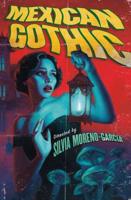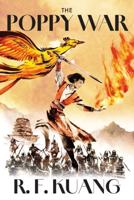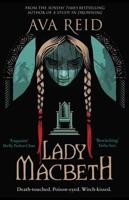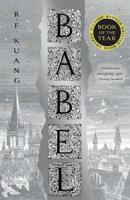Publisher's Synopsis
When Genghis Khan's insatiable hunger for conquest clashes with the remnants of the Roman Empire, fractured and clinging to survival in Constantinople, a clash of steel and sorcery will determine the fate of the known world. * The year is 1241. The Mongol hordes, led by the fearsome Batu Khan, sweep across the steppes, leaving a trail of devastation in their wake. Europe trembles before their unmatched cavalry and brutal tactics. But Batu's ambition stretches further, beyond the crumbling kingdoms of the West, to the ancient city of Constantinople, the last bastion of the Eastern Roman Empire. Constantinople, once the jewel of the world, is a shadow of its former glory. Torn by internal strife, plagued by corruption, and weakened by centuries of decline, the Empire is a fragmented entity ruled by the young and untested Emperor John Komnenos. He is surrounded by power-hungry advisors, scheming nobles, and whispers of ancient prophecies. But within the Empire's walls lies more than just fading grandeur. Deep beneath the Hagia Sophia, hidden from the world, lies the legacy of the Roman Empire's true power: a lineage of sorcerers and mages who once commanded the elements and guarded the Empire's borders. These practitioners of ancient Roman magic, the "Custodes Arcani," have dwindled in number, their knowledge fading with time. Yet, they remain, a secret weapon against the approaching storm. When a desperate plea for aid reaches Constantinople, carried by a lone knight fleeing the Mongol advance, Emperor John sees an opportunity. He sends a delegation, led by the charismatic General Alexios, to negotiate an alliance with the fragmented kingdoms of the West. Accompanying them is Cassandra, a young Custos Arcanus, whose latent magical abilities are only beginning to awaken. Their journey is fraught with peril. They face not only the Mongol vanguard but also rogue Byzantine factions who seek to exploit the chaos for their own gain. Cassandra learns to harness her powers, unlocking the forgotten secrets of Roman magic, while Alexios proves himself a shrewd strategist and a capable warrior. Meanwhile, in Constantinople, the Custos Maximus, an aging mage named Valerius, prepares the city's defenses, drawing upon the last vestiges of the Empire's magical strength. He senses a dark presence within the Mongol ranks, a shaman wielding forbidden magic that threatens to overwhelm even the most potent spells. As the Mongol army lays siege to Constantinople, the Great Mongol Battle begins. Catapults hurl fire and stone against the Theodosian Walls, while Mongol cavalry harass the defenders. Alexios and Cassandra return with a small but determined force of Western knights, bolstering the city's ranks. The battle becomes a clash of cultures and magics. Roman legionaries fight alongside Byzantine cataphracts, wielding spears and swords against the Mongol hordes. Cassandra weaves spells of protection and destruction, summoning gusts of wind to deflect arrows and unleashing bolts of lightning upon the enemy ranks. But the Mongols have their own secrets. Batu Khan, fueled by the dark magic of his shaman, unleashes monstrous creatures conjured from the spirit world upon the city. A giant ogre, a pack of shadow wolves, and a swarm of demonic birds terrorize the defenders. As the siege intensifies, Emperor John must make a difficult choice. He must decide whether to embrace the ancient magic of the Custodes Arcani, risking the stigma of heresy and the potential for uncontrolled power, or rely solely on the dwindling strength of his army. The fate of Constantinople, and perhaps the entire world, hangs in the balance. The Great Mongol Battle will be a test of courage, cunning, and the enduring power of belief, a struggle between two empires vying for dominance in a world teetering on the brink of chaos.









